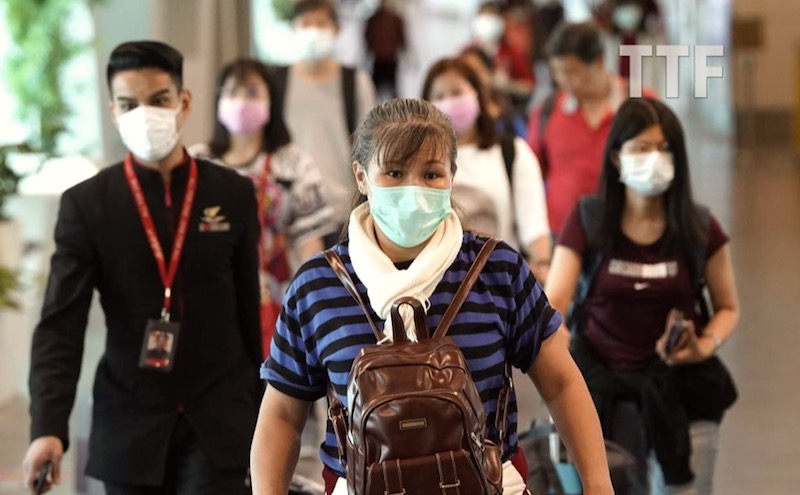
“Fatigue is bound to set in sooner or later as people begin to embrace the war against Covid-19 as the “new normal” and ask very tough questions, shifting their gaze towards competency and livelihood issues and viewing them through very powerful microscopes sponsored by the opposition”
Raggie Jessy Rithaudeen
تاهڤ ڤنريمأن كراجأن منيڠكت، تتاڤي لمبت لاون، رعيت اكن ءلتيه’
#TTFCovid19
“In a warlike situation, you want to trust who governs you, and that goes for bad leaders and competent ones,’’ said Nathalie Tocci, director of Italy’s Institute of International Affairs. “But my hunch is that ultimately true colors will show.’’
What Nathalie said makes absolute sense. When there is a national crisis that makes people fearful and insecure, they tend to rally around the government of the day that is seen doing something – anything.
When people are confused and afraid, they tend to trust their governments more, because to think that the people in power are themselves confused and afraid, let alone incompetent, may be too much to bear for many.
As a result, anything done by government towards bringing things back to normal, effective or otherwise, presents a beacon of hope.
But one can only hope for so long, as fatigue will undoubtedly set in.
“The initial instinct is to rally around the flag, because it is seen as unpatriotic and unhelpful not to do so,” said Mark Leonard, director of the European Council on Foreign Relations.
“But societies can’t be mobilized in perpetuity. There’s inevitably a fatigue, and people will ask more difficult questions.”
Leonard, too, is right. When the violently lethal Spanish Flu triggered a pandemic in 1918, the world was at war.
To avoid damaging morale and the war effort, local officials always told half-truths or outright lies, assisted by the press which cooperated fully with the government’s propaganda machine.
As the disease approached a city or town, local officials would tell the public not to worry, that public health officials would prevent the disease from striking them.
When the disease finally struck, officials would routinely insist that it was only ordinary influenza, not the Spanish flu.
As the epidemic exploded, officials assured the public almost on a daily basis that the worst was over.
These assurances and reassurances convinced the people – who were fearful of the unknown, helpless at not knowing what the future held and fatigued by it all – that the government knew what to do.
But as the reassurances kept coming, the same people could see neighbours, friends, and spouses dying horrible deaths.
Soon, the fatigue was not so much due to the virus – whose existence and notoriety were gradually embraced as the “new normal” – but the long wait as people hit hard by the pandemic wondered if the government was competent and transparent enough to dole out truths and chart a course towards recovery.
Former NATO secretary-general and British defense secretary, George Robertson, put it bluntly – “People do rally around, but it evaporates fast.”
For now, most government leaders have seen a surge in popular support as they combat a natural calamity that has wreaked havoc both to the economy and their war chests.
A report read:
“In Austria, where returning workers are required to wear masks, Chancellor Sebastian Kurz’s approval has risen to 77 percent, up 33 points. Similarly, Prime Minister Mark Rutte of the Netherlands has 75 percent support, up 30 points.
“As some children return to school and her government prepares Danes for a phased reopening that could take many months, Prime Minister Mette Frederiksen’s support is up 40 points, to 79 percent.
“The virus has even managed to revive the lame-duck government in Germany, which had been shedding support to both the Greens and the far right. Support for Chancellor Angela Merkel, whose performance has been mostly applauded both inside and outside the country, has risen 11 points, to 79 percent.
“Italy, which has the highest death toll in the world behind the United States, and the government seemed to fumble through a piecemeal response that was always a step behind the virus. But Mr. Conte has seen his overall approval rating soar.”
In Malaysia, several unofficial, unverified reports suggest that more than 90 per cent of people approve of Prime Minister Tan Sri Muhyiddin Yassin’s handling of the pandemic.
On the 18thof March 2020, Muhyiddin brought into effect a Movement Control Order (MCO) that is currently in its fifth week following a two-week extension that began yesterday (13th of April 2020).
But fatigue is bound to set in sooner or later as people begin to embrace the war against Covid-19 as the “new normal” and ask very tough questions, shifting their gaze towards competency and livelihood issues and viewing them through very powerful microscopes sponsored by the opposition.




